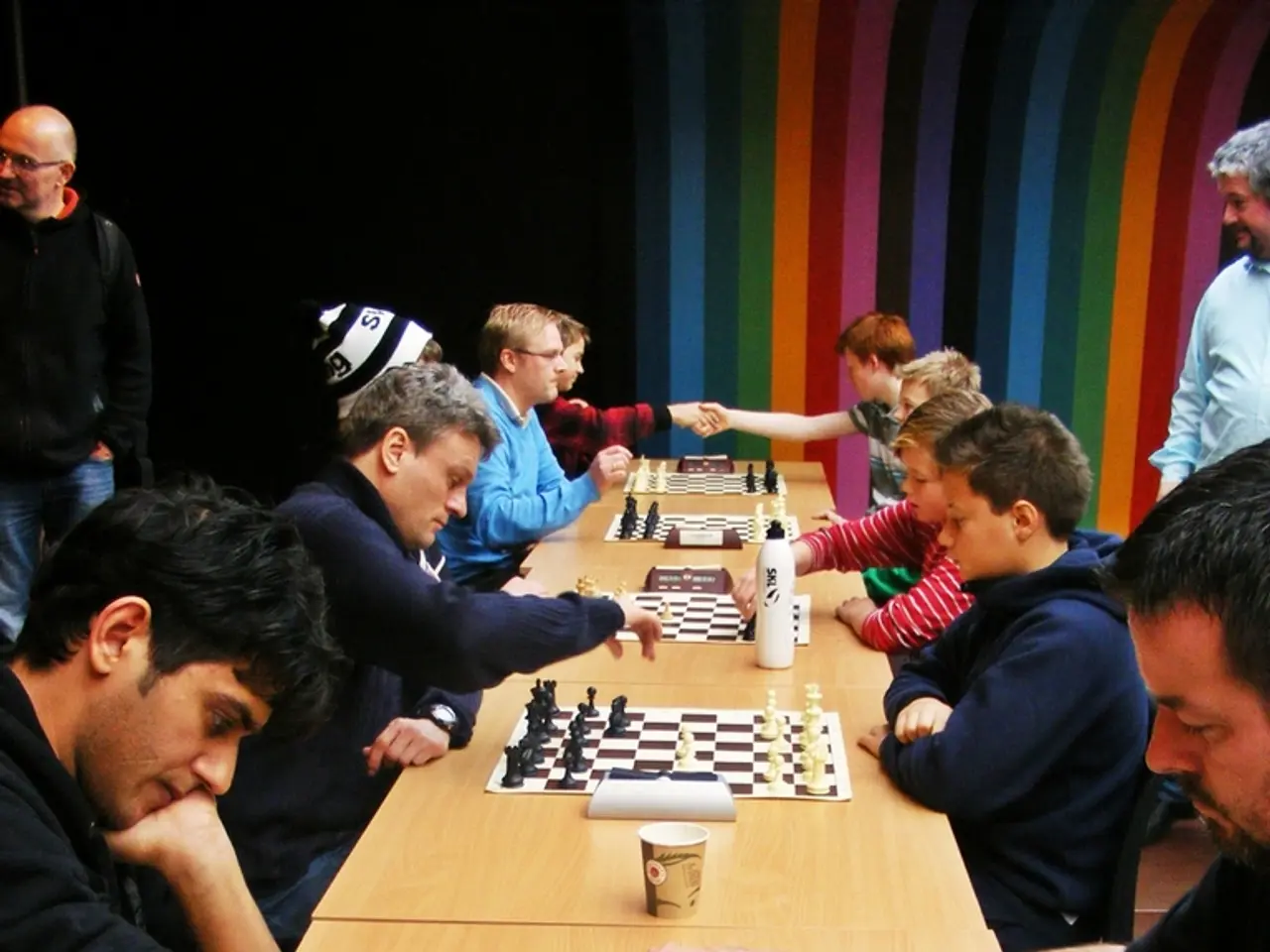Effective Gaming Scheduling: 6 Solid Methods for Harmonizing Play and Daily Obligations
Excessive gaming among young people can lead to depression, anxiety, and poor sleep quality, making it crucial to maintain a balance between gaming and daily responsibilities. Here are some key strategies to manage gaming time effectively:
Limit Screen Time
To reduce the risks of digital overload, stress, and mental health problems like depression and anxiety, it is recommended to limit gaming and screen time to under 2 hours daily outside of work. Excessive screen time is linked to irritability, fatigue, and mood disturbances.
Time Block Your Schedule
Using time management techniques such as time blocking can ensure gaming fits within your daily responsibilities and does not interfere with work or personal time. This approach helps maintain balance and productivity.
Avoid Screens Before Bed
Avoiding screens before bed helps improve sleep quality, as blue light from screens disrupts circadian rhythms and stimulates alertness.
Create Tech-Free Periods and Spaces
Creating tech-free periods and spaces, especially before sleep, helps reduce overstimulation and sensory overload that can contribute to anxiety and depressive symptoms.
Use Gamified Time Management Tools
Using gamified time management tools or offline time management games can help build organization skills and focus, reducing chaotic and inefficient gaming habits.
Monitor Mental Health
Being mindful of the potential for gaming to become addictive and for excessive use to worsen mental health is essential. Paying attention to mood changes or excessive worry can help prevent potential problems.
Taking Breaks and Setting Boundaries
Taking breaks of 20 to 30 minutes every four hours during long gaming marathons is recommended to recharge completely. Setting clear boundaries for gaming helps maintain discipline, and setting clear goals and priorities for gaming can transform chaotic habits into focused sessions that enhance both your playtime and life balance.
Effective break activities include stretching, drinking water, and getting fresh air. Placing your phone in another room or using airplane mode to resist the urge to check messages constantly is also recommended.
Using ergonomic setups and comfortable seating for better health and longer focus during gaming sessions is also recommended. Gaming addiction becomes a real threat without proper time control, making structured schedules essential for maintaining healthy lifestyle habits.
Using Gaming as a Reward
Using gaming as a reward to stay productive can help motivate you to finish important tasks first. A structured gaming schedule helps you enjoy games while staying productive and prevents gaming from taking over your entire day.
Time Management Prevents Excessive Gaming
Time management prevents excessive gaming and neglect of responsibilities that can derail your entire life. Following the 50/10 rule, taking a 10-minute break for every 50 minutes of gaming, keeps your mind fresh and your reflexes quick.
In 2025, gaming will become an interactive experience that enhances productivity and skill development. Collaborative games like "The Big Picture Challenge" will promote teamwork and communication skills. Communicating your schedule to friends to balance social life and avoid unexpected interruptions during gaming time is important.
Maintaining composure and focus while gaming requires removing visual clutter from your gaming area and desk space. Student gamers particularly struggle with time perception, often sacrificing study time for extended play sessions that hurt their academic performance. Installing website blockers on your computer to prevent browsing distracting sites while gaming or working is beneficial.
Turning off phone notifications, closing social media tabs, and silencing messaging apps before gaming sessions is advised. Skills such as awareness of time usage, planning, and persistence are learned from gaming and applicable to life situations.
Avoiding gaming for more than six consecutive hours is advised to protect performance and health. Organizing study materials and supplies for easy access during breaks is recommended. Research shows 24% of teens game after 9 PM, which hurts their sleep patterns and negatively impacts school performance.
Using noise-canceling headphones or ambient sounds to block out noise during gaming sessions is beneficial. Taking short breaks of 5 to 10 minutes every hour to stretch and rest your eyes during long gaming sessions is beneficial.
Staying focused during gaming sessions can make or break your experience and your schedule. In 2025, gaming will become an interactive experience that enhances productivity and skill development. Using the 20-20-20 rule during breaks, looking at something 20 feet away for 20 seconds every 20 minutes, protects vision during gaming sessions.
Adults need 7-8 hours of sleep per night to maintain optimal gaming performance, concentration, and decision-making skills during gameplay sessions. Creating separate spaces for studying and gaming enhances focus.
Apps like Habitica, Forest, and Trello use gamification features to transform daily tasks into game-like challenges with rewards and progress tracking. Activities like the "Mayo Jar" will help visualize task prioritization and effective management of large tasks in 2025.
The Pomodoro Game will utilize structured work intervals to boost productivity in 2025. Keeping study spaces free from gaming consoles and distractions is beneficial. Simulation games such as "Farmerama" will teach resource and time management through community-based challenges in 2025.
The 50/10 rule recommends taking 10-minute breaks for every 50 minutes of gaming to maintain focus and prevent physical strain. Avoiding multitasking while gaming or working can improve concentration and performance in both areas.
Time-blocking and strict gaming limits are vital for managing distractions that pull you away from critical responsibilities. Multiplayer games like "Overcooked! 2" and "Diner Dash Adventures" will encourage multitasking and quick decision-making in 2025.
Time Blocking Your Schedule Supports Personal Growth and Productivity
Using time management techniques such as time blocking helps maintain balance between gaming and daily responsibilities, promoting personal growth, productivity, and mental wellbeing.
Using Gamified Time Management Tools Fosters Education and Self-Development
Employing gamified time management tools like Habitica, Forest, and Trello encourages self-discipline, goal-setting, and efficiency, fostering education and self-development.




